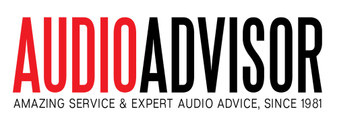The Most Revealing Phono Cable Ever from Cardas
Clear Phono Cable is a four-conductor version of the already legendary Cardas Clear interconnect. It uses the same breakthrough matched propagation conductors to achieve the most revealing phono cable that Cardas has ever developed.
Clear Phono Cable is terminated with Cardas top-of-the-line SRCA plugs and also with either Cardas Straight or Right-Angle DIN plugs.
Clear AES/EBU benefits from the benefits and discoveries that George Cardas brings to the Cardas Clear series. The following information applies primarily to Clear speaker cables but still provides an insight into the innovative approach of the Clear series in general.
Cardas Clear Technology
Cardas Clear cables use newly applied technology that is George Cardas' breakthrough solution to the smeared, unfocused sound that's inherent in standard cable designs. Cardas Clear uses Matched Propagation Conductors to deliver what George calls "an unprecedented window of clarity."
"Clear represents the best of Cardas," reports Alan Sircom in issue 66 of HiFi+ magazine, "so if you are already impressed with Cardas but want more, Clear could be the first, 'last' upgrade you make, sure in the knowledge that however high up the audiophile ladder you climb, Clear will be there, waiting for you to catch up."
Clear technology is scientifically demonstrable. It presents a 'clear' technical solution to a core problem that is intrinsic to signal-carrying cables (speaker cables, interconnects, etc.) and will quite 'clearly' improve the sound of connected hi-fi and home theater components.
The Trouble is Dielectrics
One problem with standard audio cable designs is that the cable dielectric (also known as cable insulation) produces an electrical effect that interferes with the audio signal. While there is no current flow in dielectric materials, the dielectric accumulates and releases an electrical charge in response to the current flow in the conductor, much like the charging and discharging of a capacitor. But the electrical discharge from the dielectric is out of sync with the electrical signal in the conductor.
While the electrical signal in the conductor moves at the speed of light, the charge propagation in dielectric material is limited to approximately 78 percent of the speed of light. The discharge of the dielectric lags behind the charge in the conductor, causing a smearing of low-level information in the cable.
The Lagging Charge Problem
At very high frequencies, cables can appear to propagate faster because the slower dielectric materials don't have the time to charge at very high frequencies, and the lag is diminished.
At audio frequencies, however, this lag creates a noticeable problem. That's why dielectric manufacturers may brag about what their dielectrics will do at a million cycles per second, but don't talk about what they do at a thousand cycles per second, where the negative effects are audible. Jitter is one directly observable artifact of this conductor/dielectric relationship.
Some cable manufacturers try to compensate for this differential lagging in a cable by adding an electrical network (for example, by using a load coil), but the damage has already been done. Once the low level information in the signal has been smeared, it is lost and cannot be recovered.
The Matched Propagation Solution
Since the so-called 'charge propagation velocity' of the dielectric can never equal the speed of electrical changes in the conductors, George Cardas' ingenious solution with Cardas Clear cables is to slow the conductor to match the rate of the dielectric.
In a concentrically stranded conductor with individually coated strands (such as the constant "Q" conductor used in Cardas cables) the vector velocity and decay time of the conductor can be matched to that of the dielectric by controlling the lay length progression (twists per inch or TPI) of successive strand layers.
A matched propagation velocity conductor of this type, as used in Cardas Clear cables, mitigates the effects of capacitance much as a load coils do, but it does this continuously in the cable rather than at intervals. Eliminating the time delay between storage elements in the cable itself eliminates the bandwidth and dynamic range limitation seen in periodically loaded cables.
A Huge Dynamic Range of Resolution
Clear has a constant transfer characteristic, exponentially lower resonance, and a huge dynamic range of resolution. Its Matched Propagation Conductors maintain low level information and natural transients in a way that no other cable can. It does not exaggerate the leading edge of the signals or smear low-level information as conventional conductors do. Clear maintains the overall time signature of the original sound elements making it easier to pick out what George Cardas calls "the head in the choir or the emotion in the individual voice."
The insights and technology in all the Cardas Clear cables brings a new level of clarity and realism to your listening experience.




















